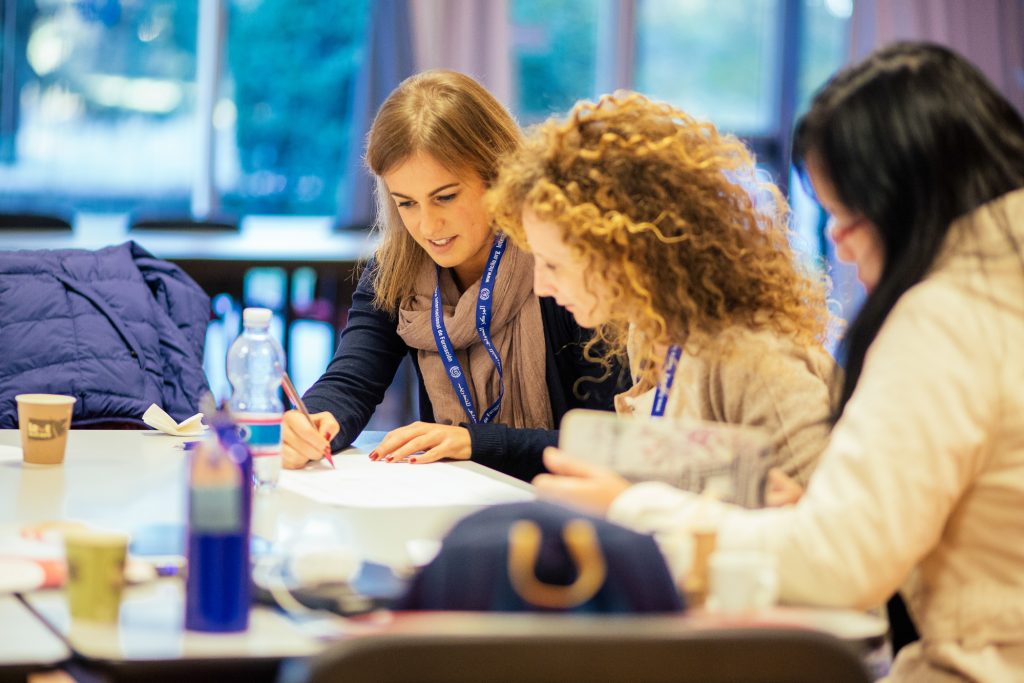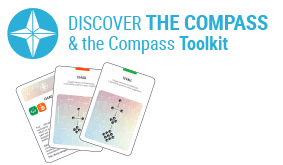Five Whys

Make the purpose of your work together clear
Overview
The Five Whys formula helps to clarify the aim of a team’s project or an individual’s task and the reasons why these are important, achieving unexpected positive development in work quality and accomplishments. A simple yet thorough shared thought simultaneously kindles a sense of freedom and more responsibility.
How to use it
- Discover what is truly important for the group members.
- Lay the project foundations, such as the design to use and the people to include.
- Change the organization propelled by stories emerging from the 5 Whys activity.
- Provide a basis for evaluation.
- Craft or clarify a compelling shared purpose.
- Begin any coaching sessions, including Troika Consulting or Peer Assist.
- Anchor each element of a Design Storyboards with “Why is this activity or element important to you? What does it add to the flow of exchanges among participants?”
How to apply it
Start:
- Participants are asked: “What do you do when working on ______ (the subject matter or challenge at hand)? Please make a short list of activities.”
- Then ask, “Why is that important to you?” Keeping asking “Why?” questions, five times, or until you can go no deeper.
Setting:
Sticky notes. An unlimited number of people, face-to-face in pairs and groups of four, then the whole group. Everyone has an equal opportunity to contribute.
Materials:
Sticky notes.
Time/Steps:
- 10 minutes: Each person in a pair is interviewed for 5 minutes. Starting with “What do you do when working on ____?”
- The interviewer gently seeks a deeper answer with each query: “Why is that important to you?”
- Then after 5 minutes, the participants switch roles with their partner, and start the interview process again.
- 5 minutes: Share the experience and insights with another pair in a foursome.
- 5 minutes: Reflect as a whole group by asking, “How do our purposes influence the next steps we take?”
How to adapt it
- In the small groups, ask if “a fundamental justification for committing time and money to the work” emerged in the conversation.
- A clear personal purpose plus a community justification can quickly fuel the spread of an initiative.
- Encourage participants to craft a single sentence that powerfully justifies their work to others: “We exist to…!”
- To make the activity progress more smoothly add 10 how questions after you have reached clarity as to the why.
- A good purpose is never closed. Make it dynamically incomplete by inviting everyone to make contributions and mutually shape understanding of the deepest need for the work.
- Record answers on sticky notes, number them and place on a flip chart. You can arrange the answers in a triangle: broad answers on the top and detailed answers on the bottom. Compare and debrief.
- Use the chat function during a webinar or on a Discussion Forums UPDATE to start formulating a purpose statement: each participant reflects on the Five Whys questions, sharing their ideas in the chat box.
Case study
Activity:
Training on project design
Contact:
G.Mercier@itcilo.org (SDG)
Description:
A participant from Malawi, who was in charge of an anti-corruption project, presented his project to the whole group. By applying the five whys method, the participants had to identify the causes of the difficulties/problems the person from Malawi was facing in his project. A detailed problem tree was created by applying the five whys. It allowed the other participants to quickly understand the difficulties and the complexity of the project.
Tips
- Create a welcoming space where participant feel at ease to talk about their insights.
- Vary how you ask “why?” For example use metaphors or hyperbole, such as “If last night while you slept your dream had come true, what would be different?”
- Share the variety of responses and reflect on differences among group members.
- If someone gets stuck, ask “Does a story come to mind?”
- Make it a routine practice in your group.





